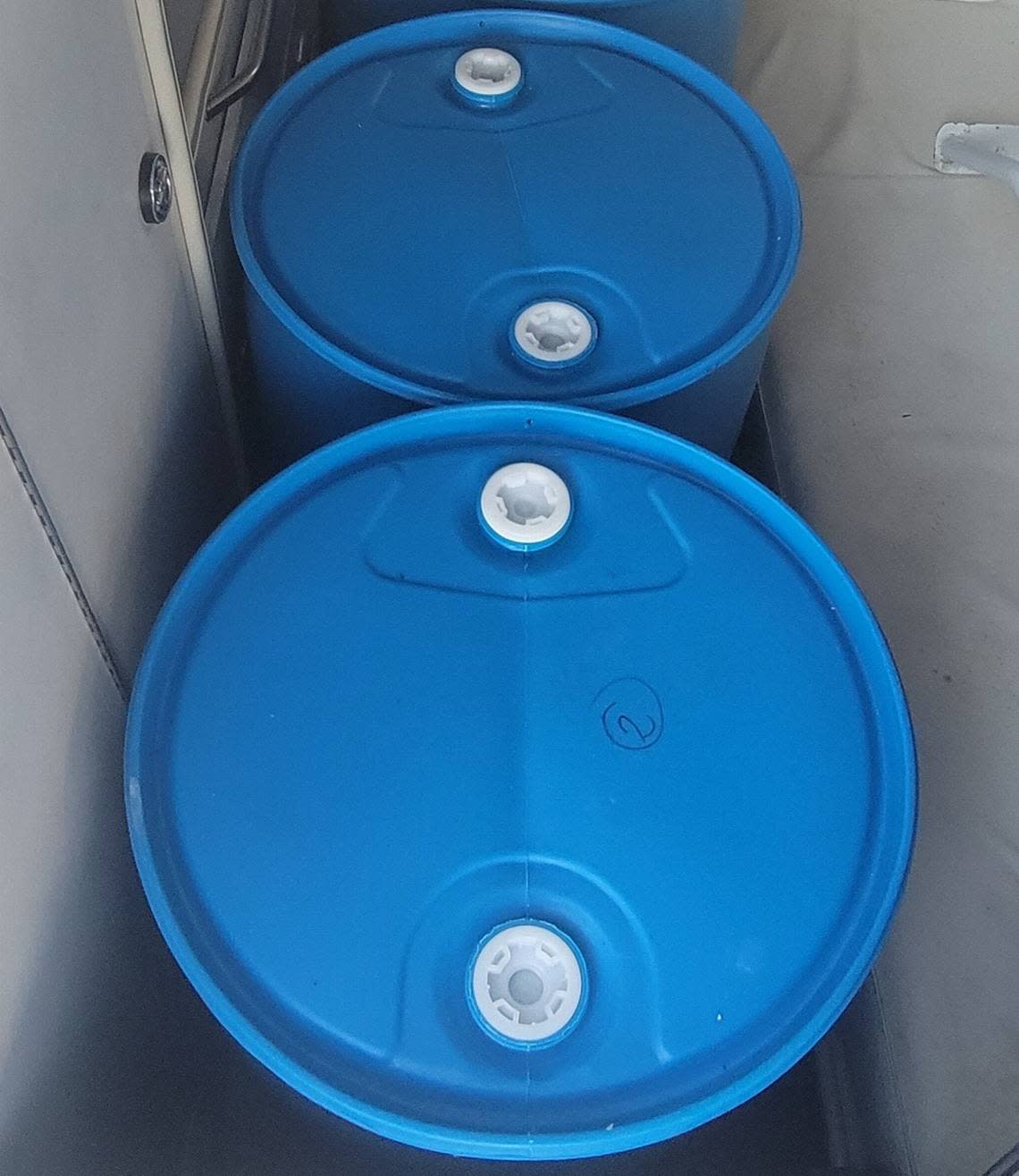They had a boat loaded with fuel. Were they planning to smuggle Cubans into the U.S.?
Two South Florida men with plans to illegally transport people from Cuba to the United States were arrested Monday in the Florida Keys on attempted human smuggling charges, the Monroe County Sheriff’s Office said.
Along with a cabin-style boat, the two were hauling telltale items that could be used to make an illegal trip from Cuba across the Florida Straits: three 55-gallon drums of fuel, a fuel transfer pump, a satellite phone and a GPS with waypoints to Cuba.
The arrests come as authorities grapple with a surge of at-sea migration from Cuba and Haiti. But most of those trips are on homemade rafts and boats unfit for the dangerous journey or on overloaded sailboats.
“Smuggling venture disrupted!” tweeted Chief Patrol Agent Walter N. Slosar at Border Patrol’s Miami sector on Tuesday. “Smugglers will commonly overload these vessels with migrants and excessive fuel, placing anyone onboard at serious risk while at sea.”
Smuggling venture disrupted! Outstanding work & coordination between the Border Patrol, HSI & MCSO deputies. Smugglers will commonly overload these vessels with migrants & excessive fuel, placing anyone onboard at serious risk while at sea. #arrested #florida #BREAKING https://t.co/yoiq8Z5TyX
— Chief Patrol Agent Walter N. Slosar (@USBPChiefMIP) September 13, 2022
Two arrests made
Monday’s arrests took place at a boat ramp in the Middle Keys city of Marathon.
Victor Manuel Rios Castillo, 29, of West Palm Beach, was charged with attempted human smuggling.
Jorge Luis Fernandez Rodriguez, 53, of Tampa, was charged with transporting fuel illegally.
“Rios Castillo admitted he was en route to Cuba for the purposes of human smuggling,” said Adam Liinhardt, spokesman for the Keys sheriff’s office.
Fernandez Rodriguez told deputies that he knew the fuel drums were in the boat that he was towing.
At 4:48 p.m. Monday, someone told the sheriff’s office that a truck towing a boat was blocking southbound traffic near mile marker 56.
Deputies arrived to find a truck and trailer at the Quay Boat Ramp nearby. The trailer had a flat tire and damaged rim.
But in the boat were fuel drums and assorted gear, including life jackets and enough water and soda for a group.
Agents from U.S. Border Patrol and U.S. Homeland Security Investigations also responded to the scene.
Recent cases are similar
Monday’s attempted smuggling case made in Marathon joins a recent list of similar, separate cases in the Keys.
In April, authorities made arrests in two cases that could possibly be linked to human smuggling. On separate days, law enforcement officers discovered a go-fast type boat loaded down with fuel off Marathon.
In one instance, Florida Fish and Wildlife Conservation Officers making a routine boat check found a 32-foot twin-engine Glasstream hauling about 210 gallons of fuel in 14 separate 15-gallon containers.
They arrested two men onboard for transportation of fuel in a compartment without proper ventilation. They were also cited for littering.
In August, federal agents found five Cuban migrants sitting in the back of a hot van without windows about three hours away from the Keys in Opa-locka. Homeland Security Investigations said that the migrants were smuggled from Cuba to Florida, and were on their way to a “stash house” to stay until each of their families came up with $15,000 for the smuggler.

Record migration numbers
The Coast Guard is grappling with a rate of migration from Cuba not seen since 2016, when 5,396 people were stopped along the Florida Straits.
That figure has already been surpassed before the current fiscal year ends Sept. 30. Since Oct. 1, 2021, Coast Guard crews have stopped 5,545 Cubans at sea.
In the federal government’s fiscal year 2020, 49 Cuban migrants were caught at-sea by the Coast Guard. In 2021, the number jumped to 838.
Over the past several months, migration reports have become so common that locals can’t keep track of them and are now accustomed to seeing empty “chugs,” the handmade, unseaworthy vessels used by Cubans, washed up on the beaches.
Coast Guard crews stop migrants on the water while Border Patrol agents and local police arrive at landings, all in and near the Keys.
Between Friday and Sunday, there were eight interdictions off the Keys. On Tuesday, the Coast Guard returned 60 Cubans to the island nation.
Migration attempts from Cuba had dwindled after President Barack Obama ended the “wet-foot, dry-foot” Cuban migration policy, which had been an incentive for people wanting to flee the communist country in risky at-sea trips.
The rule allowed those from Cuba who set foot on U.S. soil above the high-water mark to stay in the country and apply for permanent residency after a year. Those caught at sea, however, were returned to Cuba.
Federal officials keep urging Cubans not to take to the sea. But as Cuba’s economic and humanitarian conditions continue to deteriorate, people continue to leave with a sense of urgency.
“Making this trip is filled with uncertainty and great risk to loss of life,” said Petty Officer Nicole Groll, Coast Guard District Seven. “Don’t leave your families and loved ones in pain wondering where you are, use a safe and legal means of coming to the U.S.”
